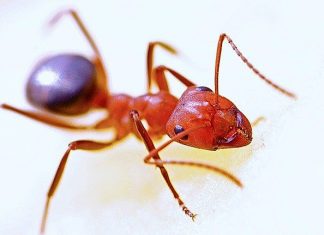Welcoming a new puppy into your home is an exciting and joyful experience, brimming with wagging tails and boundless energy. As a pet owner, your role in nurturing this bundle of fur is both rewarding and pivotal to their development. Whether you’re a first-time puppy parent or a seasoned dog lover, this guide to the best puppy care tips for this year is designed to help you provide the love and attention your new furry friend deserves. From understanding their nutritional needs to creating a safe and stimulating environment, we’ll walk you through essential practices to ensure your puppy grows into a healthy, happy, and well-adjusted member of your family. So, let’s embark on this heartwarming journey together, where every step taken is a step towards building a lasting bond with your adorable companion.
Creating a Safe and Cozy Home Environment for Your New Puppy
Bringing a new puppy into your home is a delightful experience, but it also requires careful planning to ensure their safety and comfort. Start by puppy-proofing your space: secure loose wires, remove small objects that could be swallowed, and block off any areas that might be hazardous. It’s essential to create a dedicated space for your puppy, complete with a cozy bed and some of their favorite toys. This not only helps them feel secure but also establishes a routine, which is crucial for their development.
- Invest in a high-quality crate: It provides a safe haven for your puppy and aids in house training.
- Choose non-toxic cleaning products: Puppies are naturally curious and might lick surfaces, so ensure all cleaning agents are safe for pets.
- Install baby gates: Use them to restrict access to certain areas, keeping your puppy safe while they explore.
- Maintain a consistent schedule: Regular feeding and playtimes help your puppy adapt quickly to their new home environment.
By taking these steps, you can create a nurturing atmosphere that not only protects your puppy but also makes them feel loved and part of the family.

Nutritional Needs and Feeding Schedules for Healthy Growth
Ensuring your puppy’s diet is balanced is crucial for their growth and development. A diet rich in high-quality proteins, fats, carbohydrates, vitamins, and minerals is essential for building strong muscles and supporting brain development. Look for foods specifically formulated for puppies, as these will provide the necessary nutrients for their growing bodies. Avoid feeding them table scraps or foods high in artificial additives, which can disrupt their delicate digestive systems.
Establishing a consistent feeding schedule is just as important as the quality of the food. Puppies typically need to be fed more frequently than adult dogs due to their smaller stomachs and higher energy requirements. Consider the following feeding guidelines for your new furry friend:
- 8-12 weeks old: 4 meals per day
- 3-6 months old: 3 meals per day
- 6-12 months old: 2 meals per day
Monitor their growth and adjust portion sizes as needed, consulting with your veterinarian to ensure you’re meeting their nutritional needs. This structured approach will help your puppy thrive, setting the foundation for a healthy and happy life.
Understanding Your Puppys Behavior and Socialization Needs
Bringing a new puppy into your home is an exciting adventure, but understanding their behavior can be a bit of a mystery. Puppies, much like children, go through different developmental stages, and recognizing these can help you nurture a well-adjusted dog. Observation is key: notice how your puppy reacts to different stimuli, like sounds or new people. Each puppy is unique, but some common behaviors include chewing, barking, and the occasional accident indoors. These are normal and part of their growth. Providing appropriate chew toys and consistent potty training can mitigate these challenges.
Socialization is equally crucial and should begin early. Exposing your puppy to various environments, people, and other animals can significantly impact their ability to interact confidently as they grow. Consider these tips to foster positive social experiences:
- Introduce your puppy to new experiences gradually and in a controlled manner.
- Use treats and praise to reinforce positive interactions.
- Organize playdates with other vaccinated puppies to encourage healthy social skills.
- Attend puppy training classes for professional guidance and peer interaction.
Remember, patience and consistency are your best tools in raising a happy, well-behaved puppy.

Essential Health Care Tips and Regular Veterinary Visits
Ensuring your puppy’s health is paramount for their happy and active life. Begin by establishing a routine for their basic health needs. Puppies require a balanced diet rich in proteins, fats, and essential nutrients. Consult your veterinarian to determine the best food options for your furry friend, as their nutritional needs vary with age, breed, and size. Hydration is equally important, so always provide access to fresh water.
- Vaccinations: Protect your puppy from common diseases by adhering to a vaccination schedule.
- Parasite Prevention: Regularly check for fleas, ticks, and worms, and use vet-recommended preventatives.
- Dental Care: Introduce dental hygiene early by using puppy-safe toothbrushes and dental chews.
Regular veterinary visits are crucial to monitor your puppy’s growth and catch any potential health issues early. These check-ups should include a full physical examination, weight monitoring, and discussions about any behavioral changes. Building a strong relationship with your vet will ensure you have expert guidance on hand whenever needed.
















